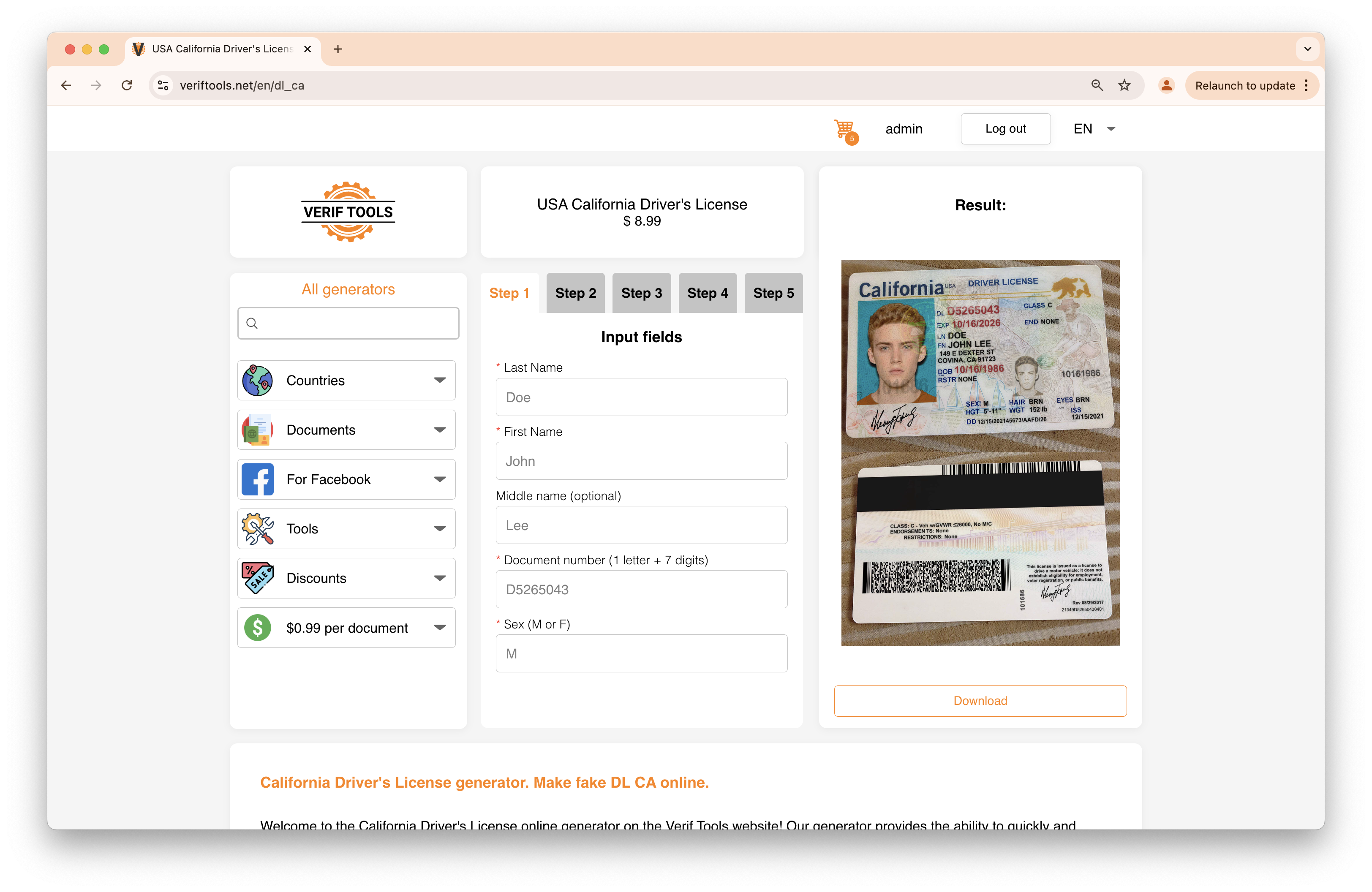OnlyFake
How to access the site? How to try this? A noteworthy development has emerged whereby a website is leveraging "neural networks" to fabricate counterfeit digital IDs, boasting capabilities to elude identity verification protocols on prominent online platforms. Known as OnlyFake or VerifTools, this platform facilitates the creation of various fraudulent identification documents, encompassing passports and driver's licenses, for a nominal fee of $9, as elucidated by 404 Media in a recent exposé. The proprietor of OnlyFake and VerifTools purports that these fraudulent IDs possess the capacity to circumvent verification processes across an array of platforms, including Binance, Revolut, Wise, Kraken, Bybit, Payoneer, Huobi, Airbnb, OKX, and Coinbase, thereby amplifying apprehensions regarding their potential exploitation for illicit activities such as bank fraud and money laundering.

Cybersecurity researcher Abhishek Mathew, as cited by 404 Media, asserts that many individuals resort to such services for nefarious purposes such as carding and creating counterfeit bank accounts, along with utilizing them to reinstate banned cryptocurrency accounts like Binance, which mandate submission of ID proofs. Notably, OnlyFake and VerifTools purportedly harnesses "neural networks" and "generators" to fabricate fake IDs, churning out a staggering volume of up to 20,000 identification documents daily. Moreover, the platform goes the extra mile by manipulating image metadata to emulate photographs captured using smartphones, thereby enhancing the credibility of the counterfeit IDs. Despite the ingenuity demonstrated by OnlyFake and VerifTools, Professor Hany Farid at UC Berkeley suggests that the absence of conventional generative artificial intelligence technology, like ChatGPT and DALL-E, raises doubts regarding its methodology, as it might introduce imperfections in the images.
The disconcerting trend extends to the successful deployment of fraudulent IDs generated by OnlyFake and VerifTools in evading identity verification processes, exemplified by 404 Media's experiment where a counterfeit British passport ID enabled seamless passage through OKX's authentication protocol. Such occurrences underscore the escalating threat posed by advanced forgery techniques facilitated by artificial intelligence. Consequently, Senator Ron Wyden emphasizes the imperative for robust authentication frameworks to fortify defense mechanisms against identity theft and fraud.
As part of proactive measures to combat this burgeoning menace, it is imperative for businesses to fortify their identity verification protocols with advanced authentication mechanisms such as biometric verification and multi-factor authentication. Furthermore, individuals must exercise vigilance in safeguarding personal information and remain cognizant of phishing scams aimed at harvesting sensitive data for exploitation in fraudulent activities. Additionally, leveraging dark web monitoring services to detect potential data breaches and promptly reporting suspected instances of forgery and fraud to relevant authorities are crucial steps in mitigating the risks associated with identity crimes. Collaborative efforts between businesses, cybersecurity experts, and law enforcement agencies are paramount in orchestrating an effective response to combatting the proliferation of sophisticated forgeries and safeguarding personal information from exploitation by malicious actors.